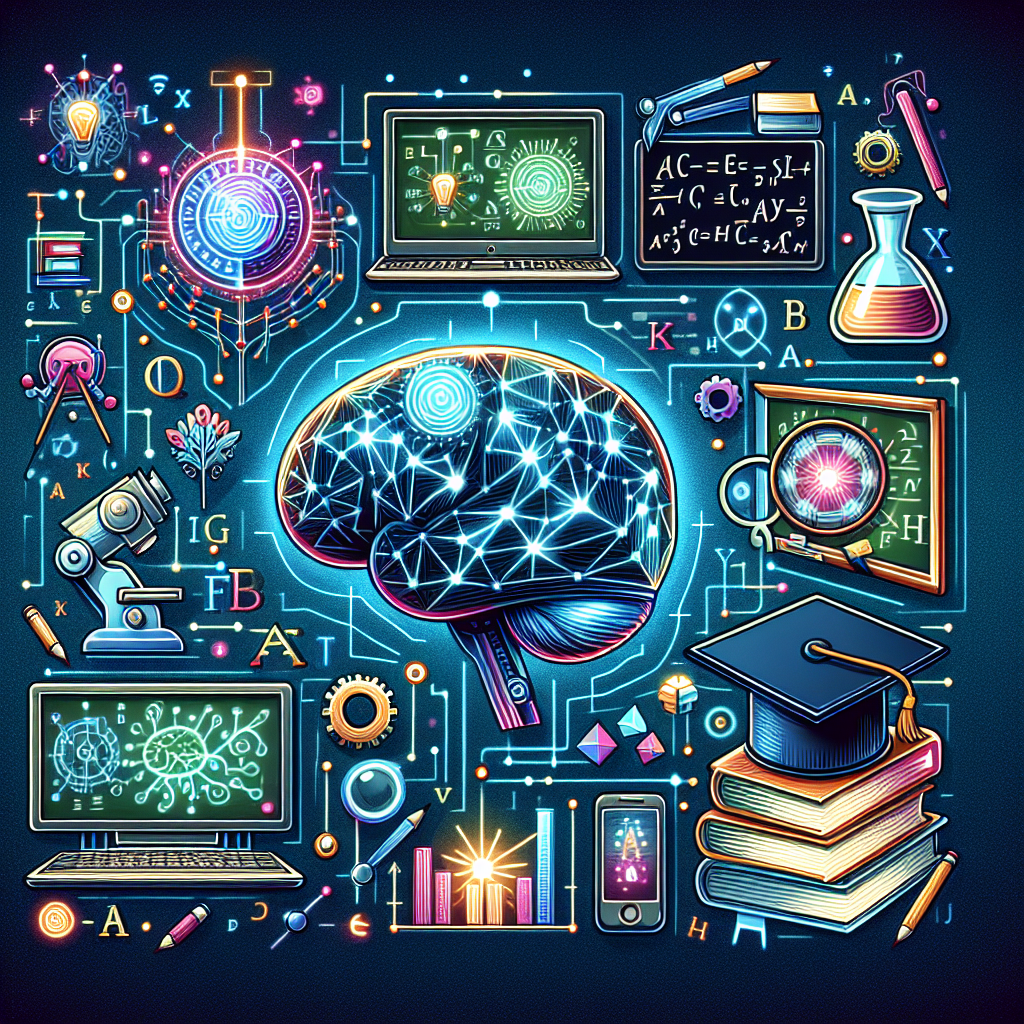In recent years, there has been a significant shift in the way education is delivered, with the integration of technology playing a crucial role in transforming traditional teaching methods. One area where this transformation is particularly noticeable is in the field of curriculum design and development, where artificial intelligence (AI) is increasingly being used to create more personalized and engaging learning experiences for students.
The Role of AI in Curriculum Design and Development
AI is revolutionizing the way curriculum is designed and developed, making it more adaptive, interactive, and tailored to the individual needs of students. By leveraging the power of AI, educators can create customized learning pathways that cater to the unique learning styles, interests, and abilities of each student. This personalized approach to curriculum design not only helps students learn more effectively but also fosters a deeper understanding of the subject matter and promotes critical thinking skills.
One of the key benefits of using AI in curriculum design is its ability to analyze vast amounts of data to identify patterns and trends in student learning. By collecting and analyzing data on student performance, engagement, and interactions with the learning material, AI can provide valuable insights into how students are learning and where they may be struggling. This data-driven approach allows educators to make informed decisions about how to modify and improve the curriculum to better meet the needs of their students.
AI can also help educators create more engaging and interactive learning experiences by incorporating elements such as gamification, simulations, and virtual reality into the curriculum. These immersive technologies not only make learning more fun and engaging but also help students develop important skills such as problem-solving, collaboration, and creativity.
Furthermore, AI can assist educators in creating adaptive learning pathways that adjust in real-time based on student performance. By continuously monitoring and analyzing student progress, AI can identify areas where students are struggling and provide targeted interventions to help them overcome their challenges. This adaptive approach ensures that each student receives the support and resources they need to succeed, ultimately leading to better learning outcomes.
Another important role of AI in curriculum design is its ability to automate routine tasks, such as grading assignments, tracking student progress, and generating personalized feedback. By automating these time-consuming tasks, educators can free up more time to focus on designing and delivering high-quality instruction, ultimately improving the overall learning experience for students.
FAQs
Q: How does AI personalize the curriculum for individual students?
A: AI analyzes data on student performance, engagement, and interactions with the learning material to identify patterns and trends in student learning. Based on this data, AI can create personalized learning pathways that cater to the unique learning styles, interests, and abilities of each student.
Q: How does AI improve student engagement in the curriculum?
A: AI can incorporate elements such as gamification, simulations, and virtual reality into the curriculum to make learning more fun and engaging. These immersive technologies help students develop important skills such as problem-solving, collaboration, and creativity.
Q: How does AI help educators track student progress?
A: AI can automate routine tasks such as grading assignments and tracking student progress, allowing educators to easily monitor student performance and provide personalized feedback in real-time.
Q: How does AI assist educators in creating adaptive learning pathways?
A: AI continuously monitors and analyzes student progress to identify areas where students are struggling. Based on this data, AI can provide targeted interventions to help students overcome their challenges and adjust the curriculum in real-time to better meet their needs.
Q: How does AI save educators time in curriculum design and development?
A: AI can automate time-consuming tasks such as grading assignments, tracking student progress, and generating personalized feedback, allowing educators to focus more on designing and delivering high-quality instruction.

